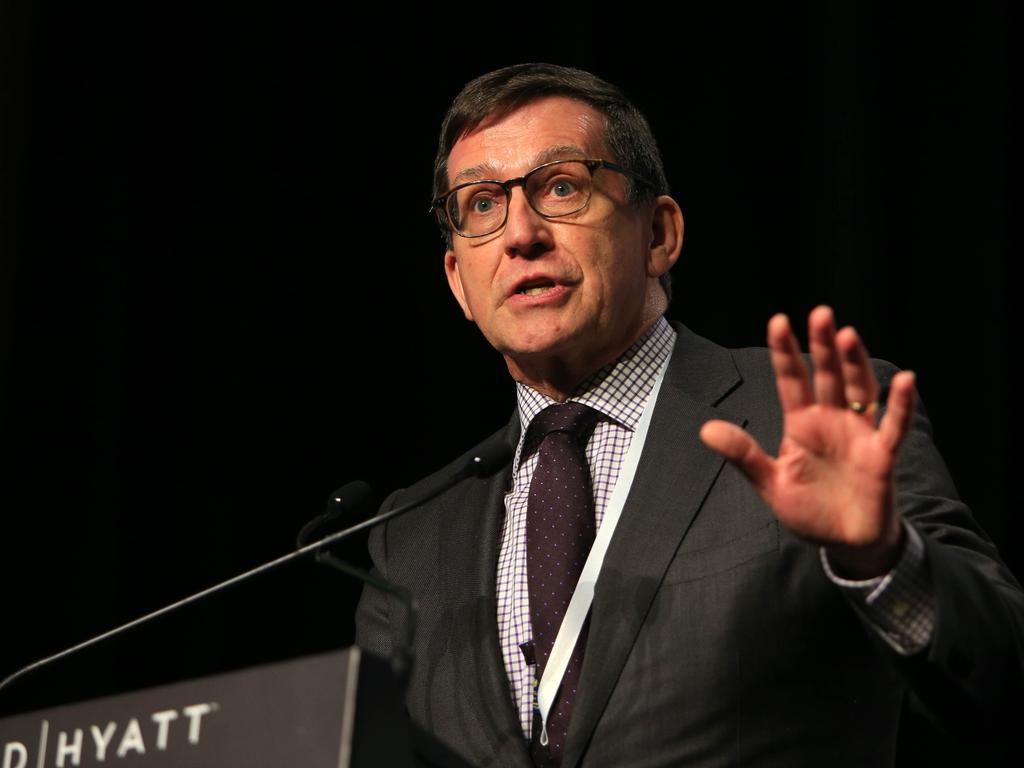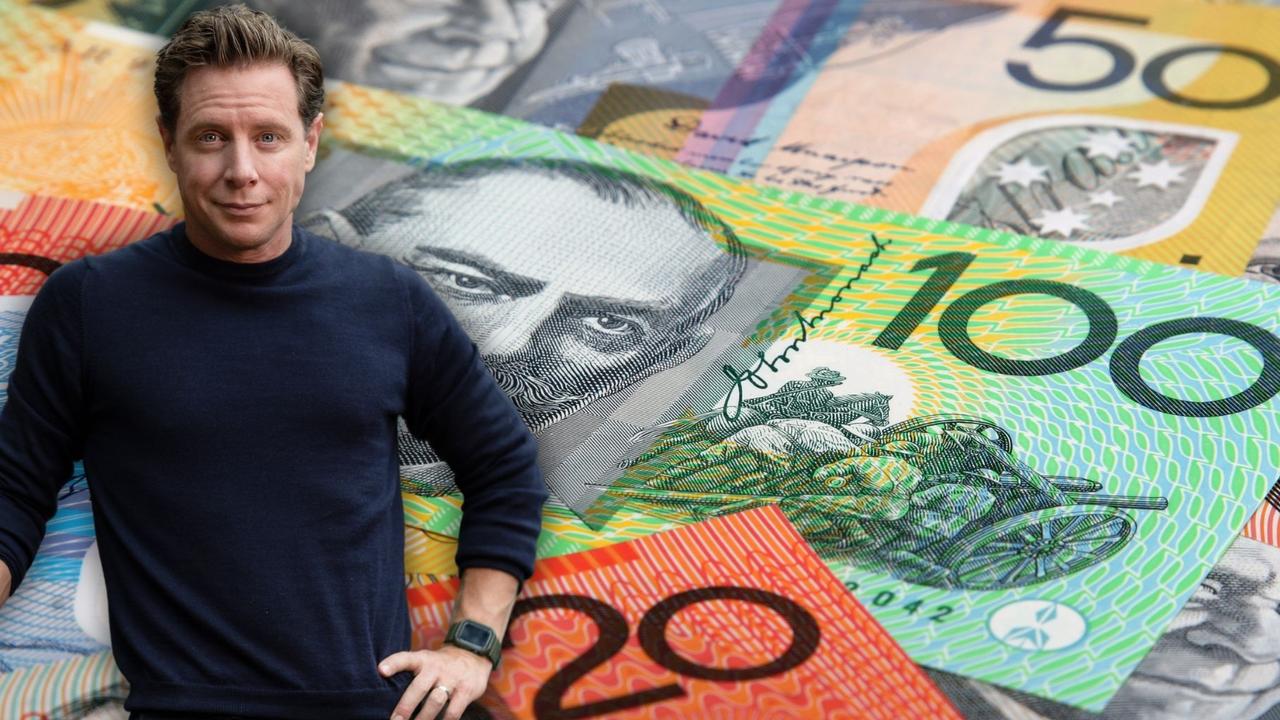Major bank valuations take a combined $18bn hit amid rate hike concerns
Nervous investors wiped $18bn from the value of major banks amid concern that a more aggressive policy tightening by the RBA could cause a recession and a blowout in bad debts.

Business
Don't miss out on the headlines from Business. Followed categories will be added to My News.
Nervous investors wiped $18bn from the value of major banks amid concern that a more aggressive policy tightening by the Reserve Bank could cause a recession and a blowout in bad debts.
As the big four passed on the RBA’s surprise 50-basis-point rate rise in full to their variable-rate customers, Morgan Stanley projected that borrowers faced a huge increase of up to $35bn in their annual interest costs if rates followed their upward trajectory.
However, NAB chairman Phil Chronican said many of the bank’s customers were ahead on their repayments, which would help to cushion the financial hit.
“I don’t want to sound too sanguine,” Mr Chronican told The Australian.
“If you take the combined effect of this plus rising petrol prices and home energy costs, we should recognise now there’s a lot of pressure on household budgets and we’re sensitive to that.
“We encourage any customers who are experiencing financial stress to talk to us.”
Westpac led the share-price rout for the major banks, shedding $1.43, or 6.1 per cent, to $21.98, with Commonwealth Bank down $4.49, or 4.4 per cent, at $97.47.
National Australia Bank slumped 4 per cent to $28.91, while ANZ, which is least exposed of the four to the problematic mortgage market, was 2.3 per cent lower at $23.89.
UBS banking analyst John Storey said the outlook for the sector had changed since the half-year reporting season, with inflation concerns and more hawkish central bank guidance.
Investor conversations, he said, were turning to the risk of a recession and the impact this would have on bank asset quality.
Richard Wiles, the equities analyst at Morgan Stanley, said that a “quick and aggressive” rate cycle created more challenges for banks than a “gradual and measured” tightening cycle.
“Earlier and larger rate rises and higher three-year rates suggest upside risk to our margin forecasts in the near term, but are also likely to lead to higher deposit betas (volatility), more expensive wholesale funding, a weaker housing and mortgage market, and greater recession risk,” he said.
Further analysis by Mr Wiles on Wednesday said that mortgage customers of the major banks faced a huge increase of up to $35bn in their annual interest costs, assuming that variable rates would rise by 1.5-2 per cent by the end of next year.
According to RBA data, the average rate on fixed-rate loans was 0.65 per cent below variable rates, meaning that borrowers on maturing fixed rates faced an interest-rate rise of 2.15-2.65 per cent.
With the major banks thought to have originated $400bn in fixed-rate loans since the 2019 financial year, annual interest costs for borrowers switching from fixed rates to variable rates would leap $8.5bn-$10.5bn, Mr Wiles said.
At the same time, the interest cost for existing variable-rate customers would increase by $18bn-$24bn. The total annual increase would therefore be in a range of $27bn-$35bn. Mr Wiles said more than $550bn of fixed-rate mortgages had been originated since the 2019 financial year.
The RBA’s term funding facility, put in place during the pandemic, provided $133bn of ultra-cheap funding to the major banks, contributing to a price war in fixed-rate mortgages.
This shifted the mix in the major-bank mortgage portfolios over the past two years, with fixed-rate loans accounting for 38 per cent of new loans since 2019.
“Based on our calculations, they originated more than $550bn of fixed-rate mortgages (new funding and internal switching) over this period, including more than $290bn in the 2021 financial year when they price war was most intense,” Mr Wiles said. “We estimate that CBA did the most fixed-rate lending and ANZ the least.”
Announcing that CBA would pass on the full RBA increase to borrowers, taking the variable-rate home loan to 5.3 per cent, retail boss Angus Sullivan said the bank would support customers facing financial difficulties. CBA would also increase the bonus interest rate for select products by 50 basis points: “It has been a challenging time for many savers who have experienced a long period of record low interest rates. We hope these changes provide some much needed support for our customers looking to save.”
With Westpac responding on the same day as the RBA’s increase in the cash rate, ANZ was the last to announce a full pass-through to its customers.
Similar to CBA, NAB and ANZ also announced a 2.25 per cent term deposit rate.
More Coverage
Originally published as Major bank valuations take a combined $18bn hit amid rate hike concerns





